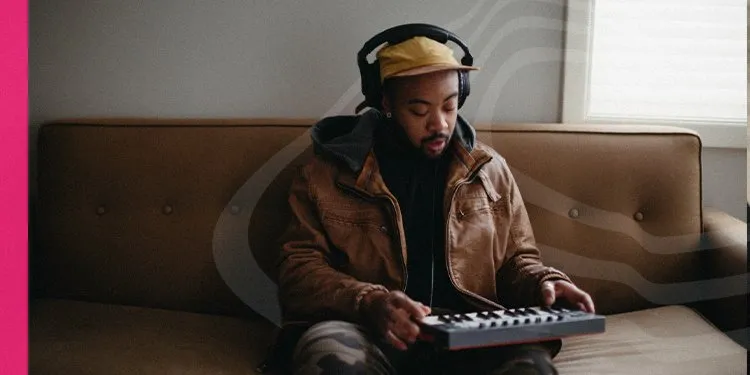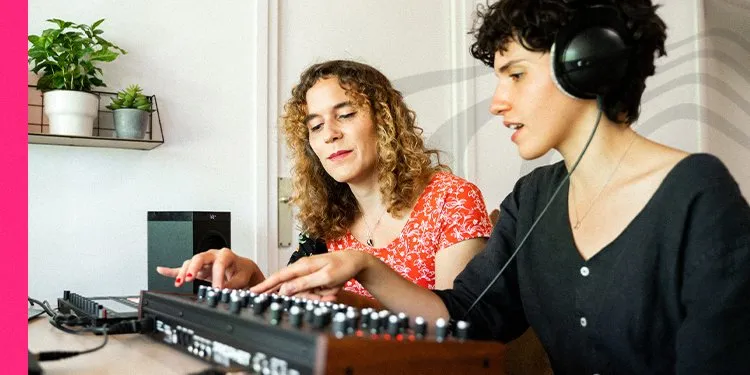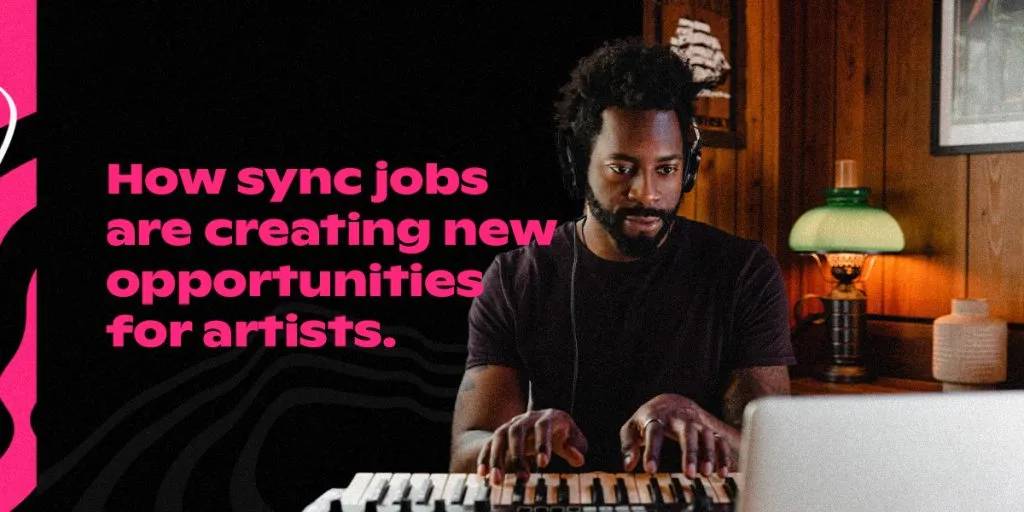When you think about “signs of progress,” most of them are double-edged swords. Yes, I know that sounds like a cliche. But hear me out: For musicians, the last few years have seen a lot of new tools that streamline the creative process, or make revenue more achievable, or introduce avenues for attracting new listeners.
The following comes from Soundstripe, a company DMN is proud to be partnering with.
This is especially true for anyone looking to turn music into a full-time job. Making a career out of music (either as a performer, songwriter, or producer) has never felt more possible.
But these tools aren’t limited to just you. They’re resources anyone can access, download, and use. So while you are empowered and equipped to improve your work, so is everyone else. This increase in competition has made it harder than ever to land paying gigs, get more downloads, and attract new listeners.
However, there are some new things that have opened doors for every musician to monetize their work. One of the most interesting ones is sync work. And since music licensing is a convoluted and complicated process, let’s look at what sync licensing is and how it can become a new source of revenue for you.
Different Types of Music Licenses

It’s not unusual to assume that licensing your music is an easy process. However, each type of music license covers a different medium; obviously our topic of discussion today is synchronization or sync licenses, which gives permission for someone to use your music in a video project.
We won’t get too specific since most musicians are already familiar with this. Suffice to say that people who work in video (whether it’s YouTube, films, or advertising) need great music, and that means sync licenses are as much a part of video production as editing footage.
Video is only getting more popular, which means two things:
- More people are making video content than ever before, which has made certain production tools more common and accessible…not unlike how music production has really opened up in the past 10 years.
- With more people making higher quality content, the need for high quality music is skyrocketing. Royalty free music companies are looking for ways to grow their libraries to attract customers, and that’s good news for musicians looking to make money via sync licensing.
When you think about sync licenses as a way to pair your songs with someone else’s video content (and get paid for each time your music is licensed for projects), it’s easy to see this as a new stream of income for musicians.
Think about it this way: For a lot of artists, working with music licensing companies can provide recurring revenue and jobs — in other words, the things that can lead to a more stable and reliable career for musicians. No more odd jobs or last-minute gigs. Just writing great music, licensing it out to a partner you trust, and making money for your hard work.
It sounds like a perfect world, but for many artists and producers, it’s becoming a reality.
How to Find Sync Jobs for Your Music
We’ve spent a lot of time so far hyping up sync licensing, but let’s pair that with a splash of cold water: Devoting yourself to sync licensing work is not a get-rich-quick scheme. You won’t have the first track you submit get accepted, land top placement in a popular playlist, get licensed by Apple for their next AirPods ad, and turn into a $50,000 royalty check overnight.
Sync licensing (like basically any other path to success in the music industry) is a long-term challenge. Yes, licensing your music with an established library can provide an extra source of income, but in most cases that’s not going to be enough for you to quit your job or start turning down other gigs.
Here’s a helpful and informative explanation from one producer on his journey to success with sync licensing:
It’s a good reminder that someone can find enough sync work to help them achieve their dreams as a musician. But it’s equally important to know that your work will be competing with other talented artists and producers, and carving out a niche for yourself in a royalty free music library can be just as tough as finding a place in your local community’s music scene.
With that being said, there are a few starting points for anyone interested in finding sync jobs.
Get Familiar with Your Options
I mentioned that the market for royalty free music companies is growing — that means there are a lot of different websites, libraries, and companies out there. But submitting your acoustic folk work to 20 different places won’t do you any good if half of them only accept ambient electronic music, right?
Start doing research on the best music licensing companies. Look up YouTube content creators and see where they get their music. Find an active online community (like one of the many music-centric subreddits) and see what licensing options people are talking about. All of these will help you find different places and get an idea of what sort of music each library is known for.
Know What’s Popular
You might read this subtopic and assume that I mean you need to write whatever kind of music is currently popular. That might help you, but the truth is that there is demand for every kind of music, which means there are music licensing companies for every genre.
However, it may mean you’ll need to adjust some things in your creative process. Maybe you’ll need to start creating stem tracks as a way to provide a greater variety. Or maybe how you mix your music needs some tweaking to target a specific audience.
Invest in Your Work

If you’re serious about finding sync jobs, there’s a good chance you’ll want to polish and perfect the tracks you’ve already made (or adjust your writing, producing, mixing, and mastering processes for all future tracks).
In some cases, you may need to contract someone to get some support. That could even mean hiring an engineer or producer to check out some tracks and give feedback — after all, anything you can do to improve your music could be the difference between having your choice of licensing companies to work with…or receiving a handful of rejection emails.
There are also dedicated sync agents out there who represent musicians and help them find placement with sync libraries. I can’t say if that’s worth investing into, but researching what they do and how they do it could help you decide if it’s something that would work for you.
Because in reality, that’s the case for your entire career. Sync jobs are creating opportunities for musicians and producers in every genre…but turning these opportunities into reliable sources of income will take time and dedication.
These three steps are suggestions to help you get started and explore the different possibilities out there for you. Hopefully you’ll get familiar with sync licensing, understand how to find libraries, and choose whether or not this is something that works for where you’re at in your career as a musician.
Drew Gula is the senior content editor at Soundstripe, a company that provides creators and businesses with resources like royalty free music and music for commercials.

